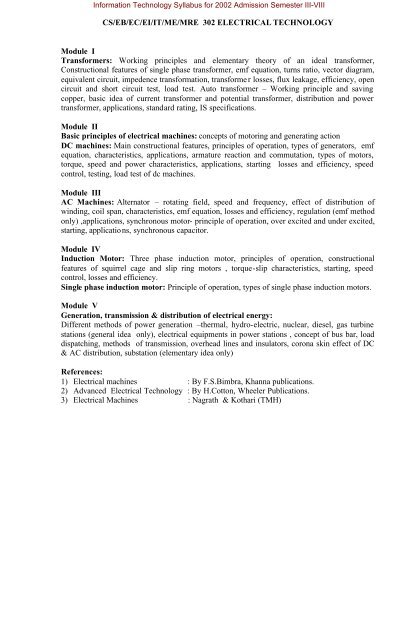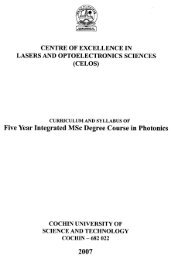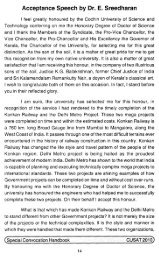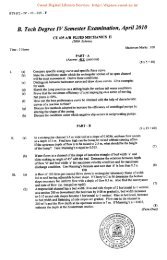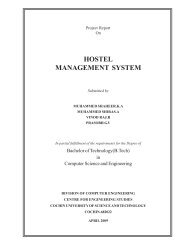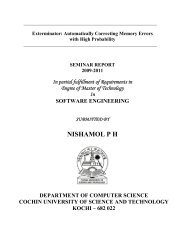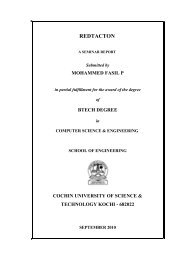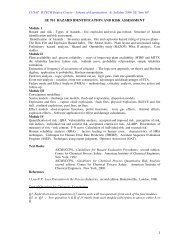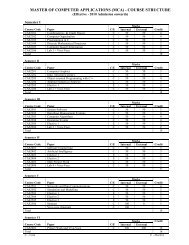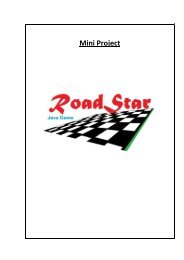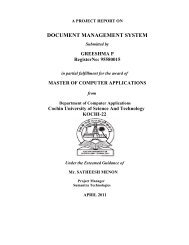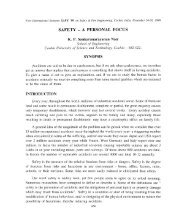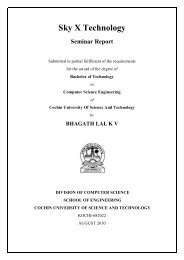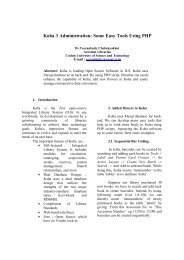Information Technology Syllabus for 2002 Admission Semester III
Information Technology Syllabus for 2002 Admission Semester III
Information Technology Syllabus for 2002 Admission Semester III
Create successful ePaper yourself
Turn your PDF publications into a flip-book with our unique Google optimized e-Paper software.
<strong>In<strong>for</strong>mation</strong> <strong>Technology</strong> <strong>Syllabus</strong> <strong>for</strong> <strong>2002</strong> <strong>Admission</strong> <strong>Semester</strong> <strong>III</strong>-V<strong>III</strong><br />
CS/EB/EC/EI/IT/ME/MRE 302 ELECTRICAL TECHNOLOGY<br />
Module I<br />
Trans<strong>for</strong>mers: Working principles and elementary theory of an ideal trans<strong>for</strong>mer,<br />
Constructional features of single phase trans<strong>for</strong>mer, emf equation, turns ratio, vector diagram,<br />
equivalent circuit, impedence trans<strong>for</strong>mation, trans<strong>for</strong>mer losses, flux leakage, efficiency, open<br />
circuit and short circuit test, load test. Auto trans<strong>for</strong>mer – Working principle and saving<br />
copper, basic idea of current trans<strong>for</strong>mer and potential trans<strong>for</strong>mer, distribution and power<br />
trans<strong>for</strong>mer, applications, standard rating, IS specifications.<br />
Module II<br />
Basic principles of electrical machines: concepts of motoring and generating action<br />
DC machines: Main constructional features, principles of operation, types of generators, emf<br />
equation, characteristics, applications, armature reaction and commutation, types of motors,<br />
torque, speed and power characteristics, applications, starting losses and efficiency, speed<br />
control, testing, load test of dc machines.<br />
Module <strong>III</strong><br />
AC Machines: Alternator – rotating field, speed and frequency, effect of distribution of<br />
winding, coil span, characteristics, emf equation, losses and efficiency, regulation (emf method<br />
only) ,applications, synchronous motor- principle of operation, over excited and under excited,<br />
starting, applications, synchronous capacitor.<br />
Module IV<br />
Induction Motor: Three phase induction motor, principles of operation, constructional<br />
features of squirrel cage and slip ring motors , torque-slip characteristics, starting, speed<br />
control, losses and efficiency.<br />
Single phase induction motor: Principle of operation, types of single phase induction motors.<br />
Module V<br />
Generation, transmission & distribution of electrical energy:<br />
Different methods of power generation –thermal, hydro-electric, nuclear, diesel, gas turbine<br />
stations (general idea only), electrical equipments in power stations , concept of bus bar, load<br />
dispatching, methods of transmission, overhead lines and insulators, corona skin effect of DC<br />
& AC distribution, substation (elementary idea only)<br />
References:<br />
1) Electrical machines : By F.S.Bimbra, Khanna publications.<br />
2) Advanced Electrical <strong>Technology</strong> : By H.Cotton, Wheeler Publications.<br />
3) Electrical Machines : Nagrath & Kothari (TMH)


